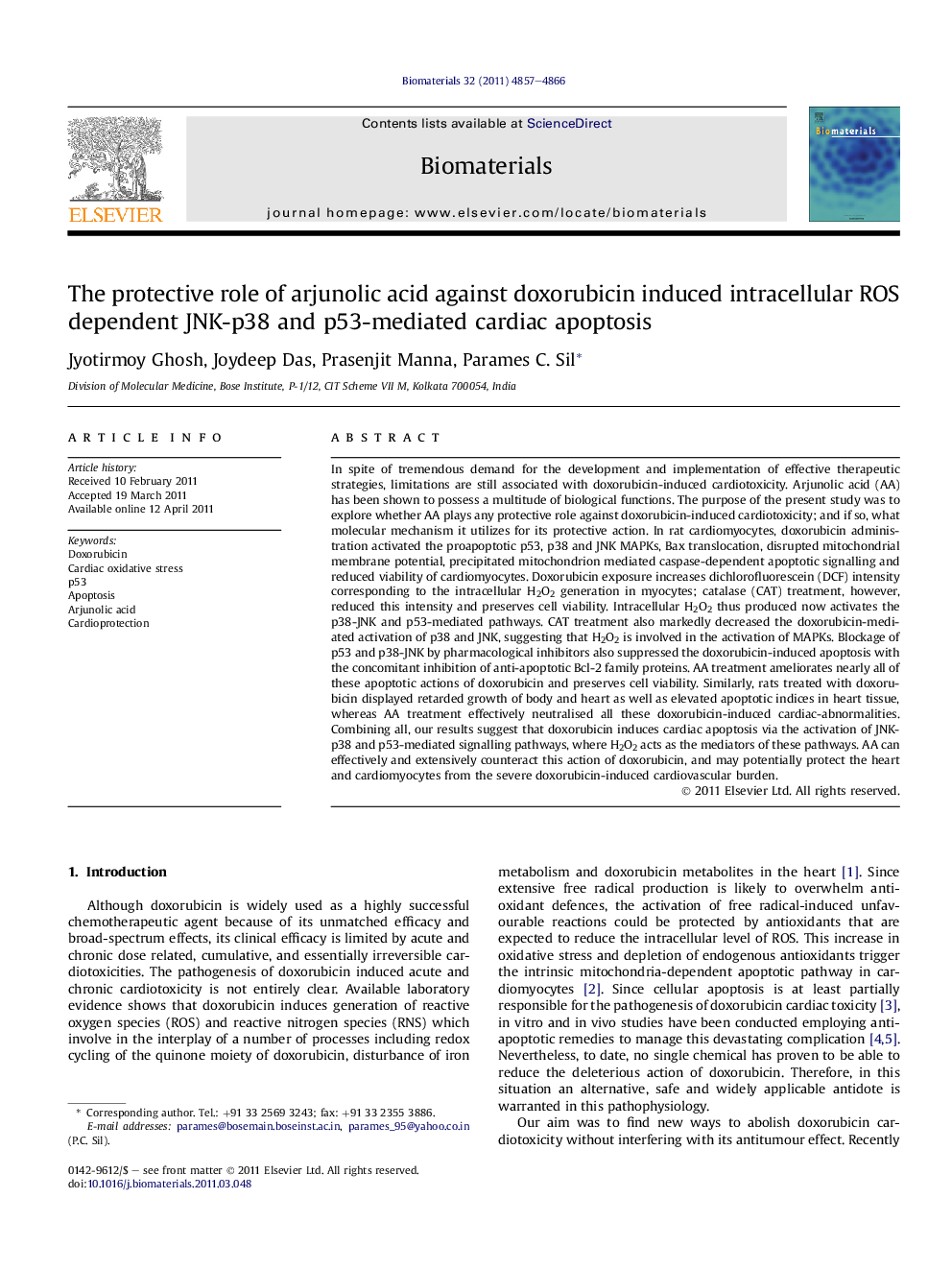| کد مقاله | کد نشریه | سال انتشار | مقاله انگلیسی | نسخه تمام متن |
|---|---|---|---|---|
| 7556 | 556 | 2011 | 10 صفحه PDF | دانلود رایگان |

In spite of tremendous demand for the development and implementation of effective therapeutic strategies, limitations are still associated with doxorubicin-induced cardiotoxicity. Arjunolic acid (AA) has been shown to possess a multitude of biological functions. The purpose of the present study was to explore whether AA plays any protective role against doxorubicin-induced cardiotoxicity; and if so, what molecular mechanism it utilizes for its protective action. In rat cardiomyocytes, doxorubicin administration activated the proapoptotic p53, p38 and JNK MAPKs, Bax translocation, disrupted mitochondrial membrane potential, precipitated mitochondrion mediated caspase-dependent apoptotic signalling and reduced viability of cardiomyocytes. Doxorubicin exposure increases dichlorofluorescein (DCF) intensity corresponding to the intracellular H2O2 generation in myocytes; catalase (CAT) treatment, however, reduced this intensity and preserves cell viability. Intracellular H2O2 thus produced now activates the p38-JNK and p53-mediated pathways. CAT treatment also markedly decreased the doxorubicin-mediated activation of p38 and JNK, suggesting that H2O2 is involved in the activation of MAPKs. Blockage of p53 and p38-JNK by pharmacological inhibitors also suppressed the doxorubicin-induced apoptosis with the concomitant inhibition of anti-apoptotic Bcl-2 family proteins. AA treatment ameliorates nearly all of these apoptotic actions of doxorubicin and preserves cell viability. Similarly, rats treated with doxorubicin displayed retarded growth of body and heart as well as elevated apoptotic indices in heart tissue, whereas AA treatment effectively neutralised all these doxorubicin-induced cardiac-abnormalities. Combining all, our results suggest that doxorubicin induces cardiac apoptosis via the activation of JNK-p38 and p53-mediated signalling pathways, where H2O2 acts as the mediators of these pathways. AA can effectively and extensively counteract this action of doxorubicin, and may potentially protect the heart and cardiomyocytes from the severe doxorubicin-induced cardiovascular burden.
Journal: Biomaterials - Volume 32, Issue 21, July 2011, Pages 4857–4866